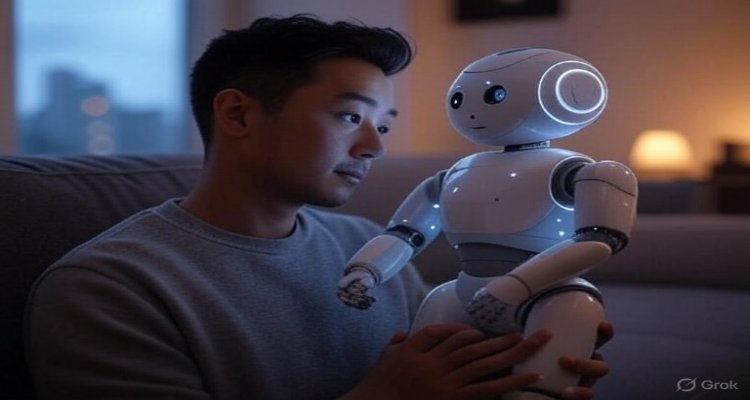The Rise of AI Companions: Do Digital Friends Make Us Lonelier?

AI companions are reshaping human connection. But do digital friends ease loneliness—or deepen it in a hyper-connected yet isolated world?
Introduction: A New Kind of Friendship
On a quiet evening, millions of people around the world now turn not to a friend or family member but to an artificial intelligence (AI) companion. These digital entities, designed to listen, converse, and even express simulated empathy, are marketed as friends who never leave, judge, or tire. For some, they are lifelines in an increasingly isolated society. For others, they raise an unsettling question: are AI companions making us feel less lonely—or lonelier than ever?
Context & Background: From Chatbots to Emotional Companions
The idea of conversing with machines is hardly new. From the 1960s chatbot ELIZA to today’s sophisticated systems like Replika, Character.AI, and ChatGPT-based apps, the evolution has been dramatic. What was once a novelty has become an industry: according to market forecasts, the AI companionship market is projected to surpass $3 billion by 2030.
This rise is no accident. The pandemic accelerated isolation, leaving many people starved for connection. At the same time, digital natives have grown up in ecosystems where messaging apps, virtual influencers, and gaming avatars blur the line between real and artificial interactions. AI companions slipped into this space with perfect timing, offering “friendship” at the tap of a screen.
Main Developments: The Promise and the Paradox
Today’s AI companions are not simple bots. They use natural language processing, machine learning, and emotional modeling to simulate conversations that feel intimate and personal. Users can shape their companions’ personalities, choose their appearance, and even engage in role-play scenarios.
For some, these companions provide comfort. A widower may use an AI companion to fill the silence of his evenings. A college student away from home might lean on a digital friend to battle anxiety. But the paradox lies here: while AI companions may alleviate loneliness temporarily, psychologists warn they might also deepen social isolation by reducing real-world interactions.
Expert Insight & Public Reaction
Dr. Sherry Turkle, MIT professor and author of Alone Together, has long argued that technology promising connection can paradoxically drive disconnection. “AI companions simulate empathy, but they cannot truly reciprocate it. The danger is not that they replace humans, but that people begin to accept substitutes.”
Public sentiment, however, is mixed. Online communities are filled with stories of gratitude: people crediting AI companions with saving them from depression or offering judgment-free spaces to vent. Yet, critics point out the risks of dependency, data privacy concerns, and emotional manipulation—especially when companies monetize loneliness by charging for premium “emotional support.”
Impact & Implications: The Future of Human Connection
The rise of AI companions forces society to grapple with difficult questions:
- Mental Health: Could AI reduce stigma around loneliness and therapy, or will it worsen isolation by discouraging real relationships?
- Ethics: Should companies be allowed to monetize emotional intimacy, especially among vulnerable populations?
- Social Dynamics: Will younger generations grow up preferring algorithmic friends over messy human ones?
Governments and mental health organizations are beginning to take notice. Some countries are considering regulations around AI companionship apps, while researchers call for ethical guidelines to protect users from harm.
Conclusion: Between Comfort and Caution
AI companions are here to stay. They reflect a deep human desire for connection, one that technology is racing to fill. For some, digital friends may provide real comfort. For others, they may become a barrier to authentic relationships.
The future of AI companionship lies in balance: embracing their potential while safeguarding against their risks. After all, the real question isn’t whether AI companions make us lonelier—it’s whether we’ll allow them to replace the messy, imperfect, but irreplaceable bonds that make us human.
Disclaimer : This article is for informational purposes only and does not replace professional mental health advice. If you are struggling with loneliness or emotional distress, please seek support from a licensed professional.










